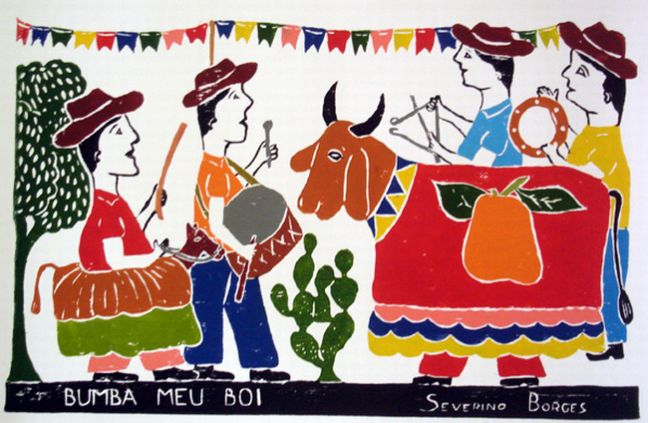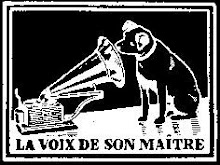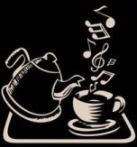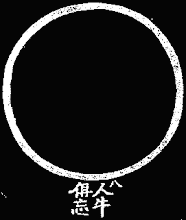Jarzębina
Łoj dolo moja dolo
Tracks:
01. Dziewcyno nadobna - 4:14
02. Po boru chodziła - 1:55
03. Dobro ja meme miała - 4:45
04. Wisienki - 2:53
05. Podróżniak - 2:25
06. Dołem dołem - 3:20
07. Tem pod borem - 4:46
08. Wysła Meniusia - 2:35
09. Polka weselna - 3:11
10. Oczepiny - 6:50
11. Łoj chmilu - 2:49
12. Przyśpiewki weselne - 8:54
13. Piosenka żydowska - 3:21
14. Cegoś mie memo za muż wydała - 2:34
15. Cieszcie się dziewczęta - 3:02
16. Jechoł pen gajowy - 2:01
17. Łoj dolo moja dolo - 2:16
18. Kołysanka Janiny Oleszek - 3:07
Irena Krawiec (vocals)
Lucyna Jargiło (vocals)
Monika Jargiło (vocals)
Janina Dyjach (vocals)
Beata Oleszek (vocals)
Janina Oleszek (vocals)
Bogumiła Smagała (vocals)
Władysława Dycha (vocals)
Accordion, Hurdy Gurdy, Vocals, Jew's Harp, Arranged By – Jacek Hałas (tracks: 3, 7, 12-17)
Drum – Alicja Choromańska-Hałas
Edited By, Accordion, Mastered By – Witold Roy Zalewski
Fiddle, suka – Krzysztof Butryn (tracks: 1, 5, 12)
Fiddle, Text By – Ewa Grochowska (tracks: 3, 7, 12, 14-15)
Graphics, Typography – Joanna Jarco
Photography – Mateusz Borny
Recorded By, Mixed By – Michał Kowalski
Text By – Remigiusz Hanaj
Vocals – zespół dziecięcy Wisienki
Guests:
Zbigniew Butryn (bas)
Mateusz Borny (suka, kornet)
Edward Pachuta (kornet)
Iza Gąbka (saksofon)
Jakub Dycha (trumpet)
Olena Yeremenko (violin)
Piotr Deptuła (fiddle)
Prezentujemy Państwu najnowszą płytę zespołu "Jarzębina". Płyta została
wydana przez Starostwo Powiatowe. Jak pisała szefowa zespołu, Irena
Krawiec na płycie zostały umieszczone pieśni tradycyjne, zaśpiewane w
tradycyjnej kocudzkiej gwarze. Płyta prezentuje 18 utworów i piosenek
wykonanych przez "Jarzębinę" z towarzyszeniem muzyków grających na
skrzypcach, drumli, basach suce biłgorajskiej, harmonii i bębnach. W
nagraniach usłyszymy orkiestrę dętą, zespół wspomogły też dzieci z
zespołu "Wisienki".
Zapraszamy do posłuchania
Zapraszamy do posłuchania
JARZĘBINA Ensemble
The music ensemble Jarzębina is amongst the most known singing groups in Poland. It was established in 1990, in the Community Culture Center in Kocudza, a village in the Janowski district, on the Roztocze hill range, one of the most interesting ethnographic regions in the Lublin area.
Jarzębina is a traditional, multi-generational female group led by Irena Krawiec. It is one of the most active in the Janowski area, recognized with many awards and honorary mentions. It consists of a singing group and ceremonial group. The music ensemble represents a rich and diverse genre repertoire of monophonic ceremonial and common songs. The repertoire is rooted in the oral tradition, based mainly on songs handed down from generation to generation in the families as well as numerous songbooks: folk carols, pastorals, Advent, Lenten and Easter psalms. The psalms and dialogues are performed in the Kocudzki dialect, with great attention to detail, such as the original tempo, volume and artistic style.
It is important to point out the unique funeral and Lenten psalms that brought Jarzębina its place amongst the leading music ensembles. Within its numerous activities, the group pays special attention to devising and preparing shows. They remind us of the life once led in the villages, according to the natural calendar and also cultivate old customs and traditions. In Jarzebina’s repertoire there is: Wesele kocudzkie (A Kocudza Wedding), Ocepiny (Capping ceremony), Prasowocki (Ironers), Miedlorki i pocirocki (Linen-Working), Łostatni rózeniec (The Last Rosary), Świecok (Food-Blessing), Mielenie w żarnach (Quern-Stone Grinding), Pośnik kocudzki (Kocudza Christmas Celebrations) and Herody kocudzkie (The Kocudza Christmas Pageant).
The group finds fulfillment playing concerts and theatrical productions of old ceremonies and traditions, performing abroad, in addition to touring the whole country, as well as being an active participant in the social and cultural life of their village, community, district and region. In 2012, Jarzębina gained popularity due to the song “Ko-ko Euro spoko”, although it has been appreciated for many years before that for its stylish and very expressive way of performing traditional repertoire. The constant invitations to festivals, solo concerts as well as a group of followers all across the country is more than enough proof of that.
Jarzębina has performed at musical reviews and festivals in: Kazimierz (an honorary mention in 1991, a guest performance with the show Linen-Working in 1993, the first prize - 2001, 2007, 2011); in Tarnogród (1991-1995); in Baranów Sandomierski (The Polish Festival of Orphan Tales and Songs 1992-1999); in Tychy (Theatrical Meetings 1996-1998); in Nadrzecze (The House Serving the Polish Art of Word, Music and Image 1997-2000); in Jarosław (The International Festival Early Music 1998-2000); in Kawkowo (The International Meetings Drama and Liturgy 1995-2002); in Zebrzydowice (The International Musical Review of Regional Groups 2002); in Modliborzyce (The Interdistrict Musical Review of Traditional Carols and Pastorals 1999-2003).
The group devotes much attention to ensuring the continuity of traditional culture in the local community. Jarzębina learns songs and gives concerts together with their “younger daughters” – the children’s group Wisienki. Jarzebina’s members have been teaching the Kocudzki style of singing for years, also outside of their community, for example in the Węgajty Theatre Schola, Gregoriana Silesiensis Schola or occasionally at special workshops (mainly led by Beata Oleszek). In 2006, the group was the co-organizer of the Tabor in Kocudza – a weekend summer camp that teaches the Lubelski school musical tradition.
The music ensemble Jarzębina is amongst the most known singing groups in Poland. It was established in 1990, in the Community Culture Center in Kocudza, a village in the Janowski district, on the Roztocze hill range, one of the most interesting ethnographic regions in the Lublin area.
Jarzębina is a traditional, multi-generational female group led by Irena Krawiec. It is one of the most active in the Janowski area, recognized with many awards and honorary mentions. It consists of a singing group and ceremonial group. The music ensemble represents a rich and diverse genre repertoire of monophonic ceremonial and common songs. The repertoire is rooted in the oral tradition, based mainly on songs handed down from generation to generation in the families as well as numerous songbooks: folk carols, pastorals, Advent, Lenten and Easter psalms. The psalms and dialogues are performed in the Kocudzki dialect, with great attention to detail, such as the original tempo, volume and artistic style.
It is important to point out the unique funeral and Lenten psalms that brought Jarzębina its place amongst the leading music ensembles. Within its numerous activities, the group pays special attention to devising and preparing shows. They remind us of the life once led in the villages, according to the natural calendar and also cultivate old customs and traditions. In Jarzebina’s repertoire there is: Wesele kocudzkie (A Kocudza Wedding), Ocepiny (Capping ceremony), Prasowocki (Ironers), Miedlorki i pocirocki (Linen-Working), Łostatni rózeniec (The Last Rosary), Świecok (Food-Blessing), Mielenie w żarnach (Quern-Stone Grinding), Pośnik kocudzki (Kocudza Christmas Celebrations) and Herody kocudzkie (The Kocudza Christmas Pageant).
The group finds fulfillment playing concerts and theatrical productions of old ceremonies and traditions, performing abroad, in addition to touring the whole country, as well as being an active participant in the social and cultural life of their village, community, district and region. In 2012, Jarzębina gained popularity due to the song “Ko-ko Euro spoko”, although it has been appreciated for many years before that for its stylish and very expressive way of performing traditional repertoire. The constant invitations to festivals, solo concerts as well as a group of followers all across the country is more than enough proof of that.
Jarzębina has performed at musical reviews and festivals in: Kazimierz (an honorary mention in 1991, a guest performance with the show Linen-Working in 1993, the first prize - 2001, 2007, 2011); in Tarnogród (1991-1995); in Baranów Sandomierski (The Polish Festival of Orphan Tales and Songs 1992-1999); in Tychy (Theatrical Meetings 1996-1998); in Nadrzecze (The House Serving the Polish Art of Word, Music and Image 1997-2000); in Jarosław (The International Festival Early Music 1998-2000); in Kawkowo (The International Meetings Drama and Liturgy 1995-2002); in Zebrzydowice (The International Musical Review of Regional Groups 2002); in Modliborzyce (The Interdistrict Musical Review of Traditional Carols and Pastorals 1999-2003).
The group devotes much attention to ensuring the continuity of traditional culture in the local community. Jarzębina learns songs and gives concerts together with their “younger daughters” – the children’s group Wisienki. Jarzebina’s members have been teaching the Kocudzki style of singing for years, also outside of their community, for example in the Węgajty Theatre Schola, Gregoriana Silesiensis Schola or occasionally at special workshops (mainly led by Beata Oleszek). In 2006, the group was the co-organizer of the Tabor in Kocudza – a weekend summer camp that teaches the Lubelski school musical tradition.
A
turning point for Jarzebina turned out to be the show “The Last Rosary”
(łOstatni rózeniec), that had its premiere in 1995 and gained a
prominent place in the history of folk ceremonial theatre. At that time,
the group began their collaboration with in crudo music centers,
especially the Warsaw Dance House Association (concerts as part of the
Stage Roots as well as the series Let me sing Your Passion and There is a
Ladder to Heaven 1995-2003). Since 1998 with the Węgajty Theatre
Schola, the group participated in international theatrical and musical
projects and a young singer from Kocudza Beata Oleszek, became an
actress and a singer in the Schola for many many years. At the Songs of
Our Roots Festival in Jarosław, Jarzębina sang at a memorable concert
along with the Italian Micrologus. They also participated in a series of
Lenten concerts, mainly the Dominican Order Lenten Singing in Lublin,
Lenten concerts at the Poznań School of Dance or the Wrocław Gregorian
Silesiensis Schola. Henryk Mikołaj Górecki highly valued Jarzebina’s
singing. The group’s performance can be found in the most important
archives; academic, radio and many private archives. Some of which have
been published in anthologies of traditional music – publishers In Crudo
(three CDs) and Muzyka Odnaleziona. The group has taken part in
numerous radio and television programmes, there are three documentaries
dedicated to the musical ensemble done by TVP 2; the singers were also
capable of finding their way so to speak in modern art (a project by
Anna Molska, “The Weepers”). Finally, there have been several Bachelor
and Master’s thesis’s written about Jarzebina.
*♥*












%20-21%2025.jpg)














































+Front.jpg)
















